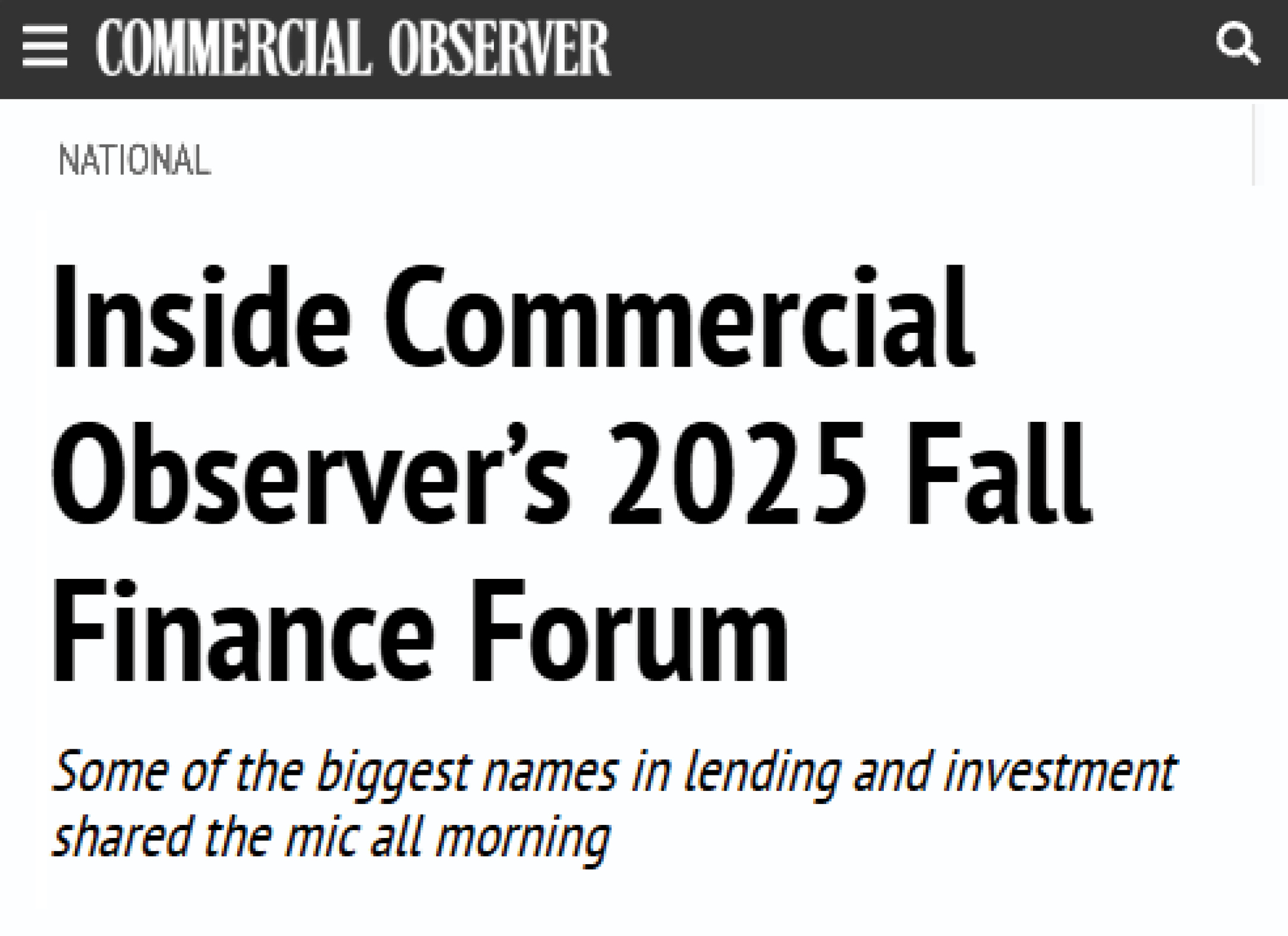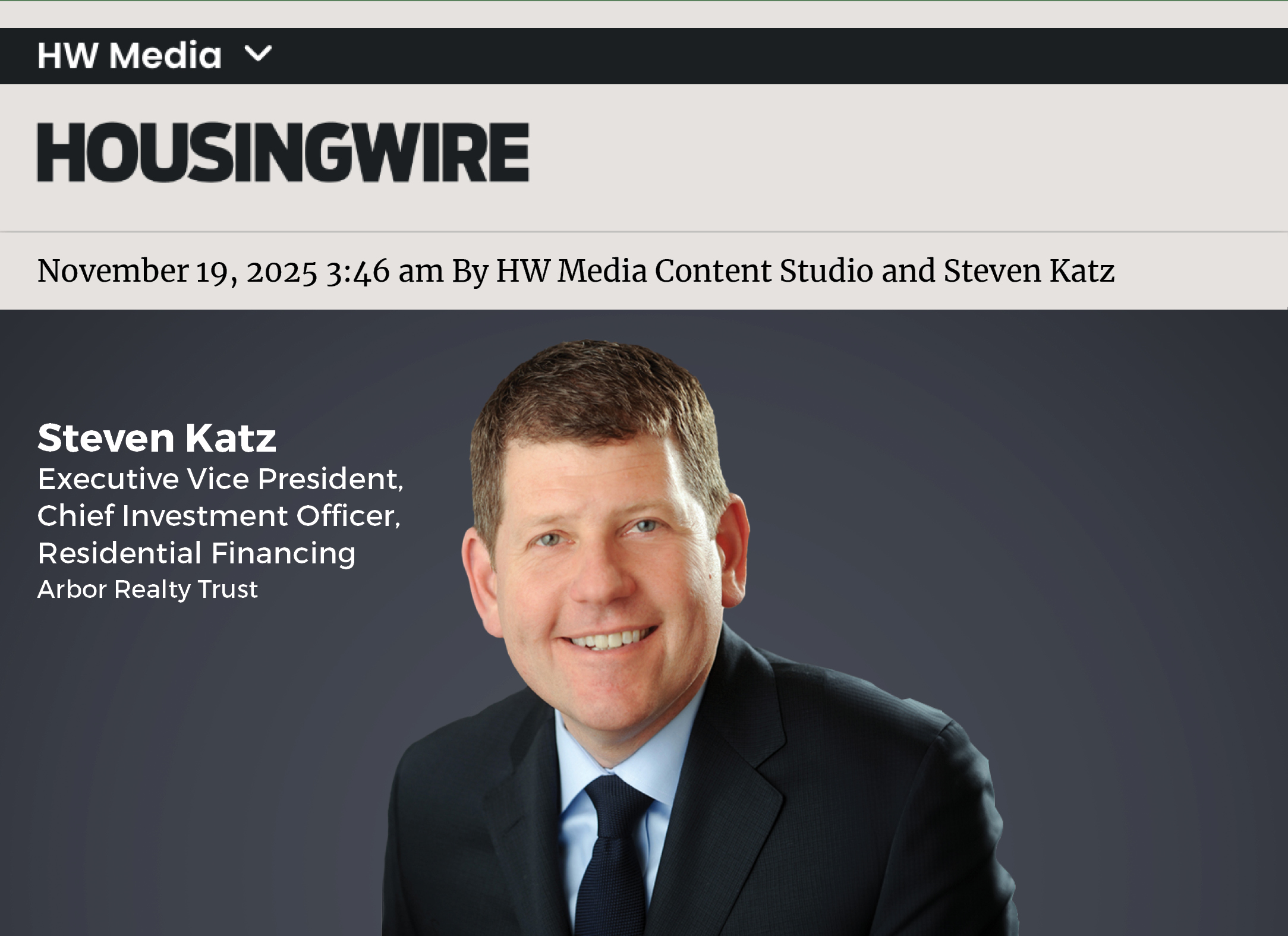Ivan Kaufman Talks 2020 Multifamily Trends on Bloomberg Markets “Odd Lots” Podcast

An Exploration of Real Estate Market Trends During the COVID-19 Pandemic
Listen to the complete podcast.
Ivan Kaufman, the chairman and CEO of Arbor Realty Trust, Inc. (NYSE:ABR), was interviewed by Joe Weisenthal and Tracy Alloway on the “Bloomberg Markets” Odd Lots podcast. In an episode titled “The CEO of a $1.4 Billion REIT Explains Housing,” he discussed why multifamily reigns as the top asset class for investors during the current COVID-19 pandemic and recession. Kaufman also shared insights on why his company is a top performing mortgage REIT, even amidst the ongoing, national economic turmoil.
In the second quarter, Arbor raised dividends for a ninth year in a row. Plus, the REIT generated core earnings in excess of the increased dividends, at $0.46 per share.
“My answer to many people who ask why are we doing so well, and why is our company outperforming is very simple. We’ve operated in many cycles. You can’t use liquidity to drive your returns and you have to be able to have a solid balance sheet and the right asset classes,” said Kaufman. He added that if companies are overleveraged or make cash flow mistakes, it’s very hard to correct those errors in a recession.
Arbor focuses on multifamily housing, loans for sale to the agencies, bridge loans and single-family rental (SFR) products.
He stated that even with the economic downturn, 60% of the real estate market has been on the winning side – referring to multifamily, single-family rental and industrial as positive asset classes. They account for approximately $6.5 trillion of the total U.S. CRE market, which the National Association of Real Estate Trusts (Nareit) has estimated to be $14 trillion to $17 trillion.
“Historically, the multifamily asset class has been the most resilient. Even when it falls, it recovers very quickly. People will want to put more money into the multifamily sector, driving prices up, cap rates down. That will offset a little bit of a decline in potential rents and occupancy,” said Kaufman. “The multifamily asset class because of those factors will be an out-performer.”
The REIT’s chairman noted governmental assistance with the CARES Act and other supplemental payments allowed renters to continue to make rent. As a result, owners could make mortgage payments and the market remained stabilized. He anticipates a second stimulus package, although questions persist surrounding the forthcoming amount of support.
Arbor is a leading lender in the built-to-rent, SFR space. Prior to COVID-19, when millennials began moving to the suburbs to form new households, the company developed its SFR program. By increasing the demand for less density, the virus accelerated the migration pattern. Due to an inventory shortage, suburban housing is rising in value and SFRs are seeing greater occupancy.
Ten years ago, the build-to-rent SFR space barely existed. However, it now makes up approximately 5% of all new housing starts, said Kaufman. On the multifamily side, Arbor is less active in urban areas but has financed workforce housing throughout the U.S. with communities already enjoying lower density configurations. Currently, occupancy and rent collection at Arbor-financed properties are down only about 1.5%, with zero delinquencies and just a handful of forbearance requests.
But COVID-19 hit the retail, hospitality and office sectors with a vengeance. Kaufman anticipates that it will take at least six to 12 months for travel and leisure to get back on its feet, and retail will undergo significant adjustments.
He has observed that the suburban office market is starting to boom and predicts post-pandemic remote working will rise. Nonetheless, Kaufman believes people will return to urban offices, and require greater social distancing, thus a larger footprint per individual. He added when liquidity returns and transactions with non-housing properties resume, then their price discovery will surface.
Listen to the complete podcast.
Learn more about Arbor Realty Trust’s multifamily housing loans. Contact Arbor today to speak with a specialist about our different financing solutions.





